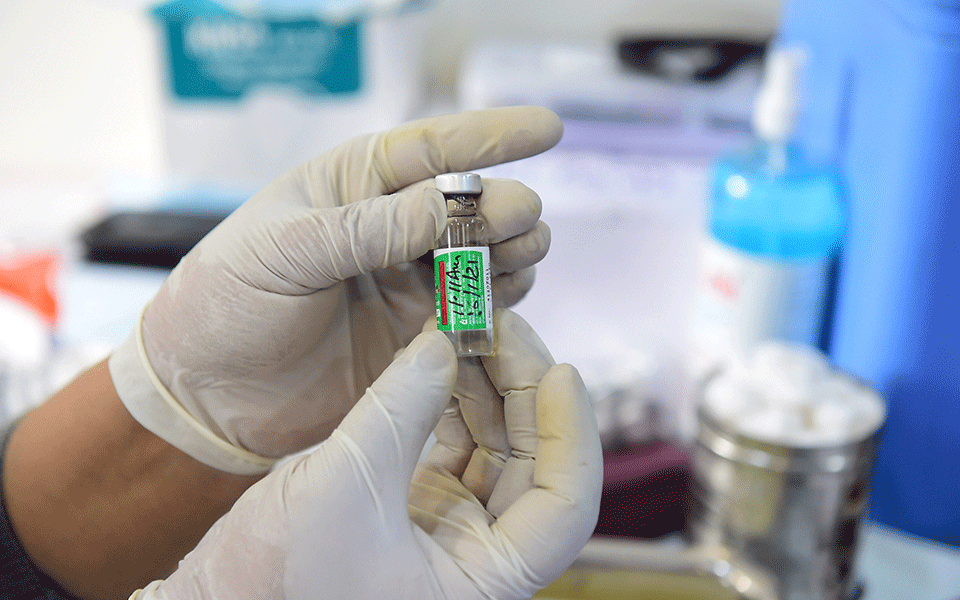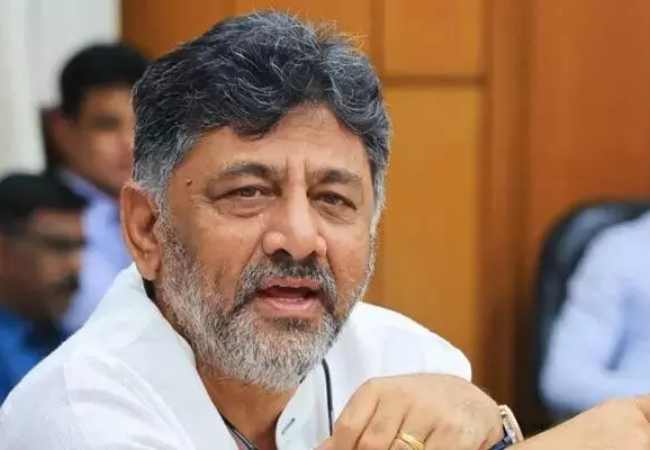New Delhi: The COVID-19 vaccination for all people aged 45 years and above commenced from Thursday, the Union Health Ministry said.
More than 6.5 crore vaccine doses have been administered across the country so far to frontline workers, healthcare workers, those above 60 and for people aged above 45 with specified co-co-morbid conditions.
The countrywide vaccination drive was rolled out on January 16 with healthcare workers (HCWs) getting inoculated and vaccination of frontline workers (FLWs) started from February 2.
The next phase of COVID-19 vaccination commenced from March 1 for those over 60 years of age and for people aged 45 and above with specified co-morbid conditions.
The ministry said so far vaccine doses have been administered to 82,60,293 HCWs (1st dose), 52,50,704 HCWs (2nd dose), 91,74,171 FLWs (1st dose) and 39,45,796 FLWs (2nd Dose), 78,36,667(1st dose) and 17,849 (2nd dose).
As on Day-75 of the vaccination drive (31st March), 20,63,543 vaccine doses were given. Out of which, 17,94,166 beneficiaries were vaccinated across 39,484 sessions for 1st dose and 2,69,377 beneficiaries received 2nd dose of vaccine.
The ministry further said that Maharashtra, Chhattisgarh, Karnataka, Punjab, Kerala, Tamil Nadu, Gujarat and Madhya Pradesh continue to show a steep rise in the COVID daily new cases accounting for 84.61 per cent of the new cases reported in a span of 24 hours.
India saw 72,330 new infections being registered in a span of 24 hours, the highest single day rise recorded so far this year.
Maharashtra has reported the highest daily new cases at 39,544. It is followed by Chhattisgarh with 4,563 while Karnataka reported 4,225 new cases.
India's active caseload has reached 5,84,055 and now comprises 4.78 per cent of the country's total infections. A net rise of 31,489 cases has been recorded in the total active caseload in a span of 24 hours.
Maharashtra, Karnataka, Kerala, Chhattisgarh and Punjab cumulatively account for 78.9 per cent of the total active cases in the country. Maharashtra alone accounts for more than 61 per cent of the active caseload of the country.
The Centre has been advising the States and UTs to increase the proportion of RT-PCR tests to more than 70 per cent of the total tests.
India's cumulative recoveries stand at 1,14,74,683 with 40,382 recoveries being registered in a span of 24 hours.
A total of 459 deaths were reported in a day, the highest so far this year.
Six states account for 83.01 per cent of the new deaths. Maharashtra saw the maximum casualties (227). Punjab follows with 55 daily deaths, the ministry said.
Let the Truth be known. If you read VB and like VB, please be a VB Supporter and Help us deliver the Truth to one and all.
Bengaluru (PTI): Karnataka has proposed a new Information Technology Policy for 2025–2030, offering extensive financial and non-financial incentives aimed at accelerating investments, strengthening innovation and expanding the state's tech footprint beyond Bengaluru.
The Karnataka Cabinet gave its nod to the policy 2025–2030 with an outlay of Rs 445.50 crore on Thursday after the Finance Department accorded its approval.
The policy introduces 16 incentives across five enabler categories, nine of which are entirely new, with a distinctive push to support companies setting up or expanding in emerging cities.
Alongside financial support, the government is also offering labour-law relaxations, round-the-clock operational permissions and industry-ready human capital programmes to make Karnataka a globally competitive 'AI-native' destination.
According to the policy, units located outside Bengaluru will gain access to a wide suite of benefits, including research and development and IP creation incentives, internship reimbursements, talent relocation support and recruitment assistance.
The benefits also include EPF reimbursement, faculty development support, rental assistance, certification subsidies, electricity tariff rebates, property tax reimbursement, telecom infrastructure support, and assistance for events and conferences.
Bengaluru Urban will receive a focused set of six research and development and talent-oriented incentives, while Indian Global Capability Centres (GCCs) operating in the state will be brought under the incentive net.
Incentive caps and eligibility thresholds have been raised, and the policy prioritises growth-focused investments for both new and expanding units.
Beyond incentives, the government focuses on infrastructure and innovation interventions.
A flagship proposal in the policy is the creation of Techniverse -- integrated, technology-enabled enclaves developed through a public-private partnership model inside future Global Innovation Districts.
These campuses will offer plug-and-play facilities, artificial intelligence and machine learning and cybersecurity labs, advanced testbeds, experience centres, and disaster-resistant command centres.
There will also be a Statewide Digital Hub Grid and a Global Test Bed Infrastructure Network, linking public and private research and development, and innovation facilities across Karnataka.
The government has proposed a Women Global Tech Missions Fellowship for 1,000 mid-career women technologists, an IT Talent Return Programme to absorb experienced professionals returning from abroad, and broad-based skill and faculty development reimbursements.
Shared corporate transport routes in Bengaluru and tier-two cities will be designed with Bengaluru Metropolitan Transport Corporation and other transport entities to support worker mobility.
The government said the policy is the outcome of an extensive research and consultation process involving TCS, Infosys, Wipro, IBM, HCL, Tech Mahindra, Cognizant, HP, Google, Accenture and NASSCOM, along with sector experts and stakeholder groups.
It estimates an outlay of Rs 967.12 crore over five years, comprising Rs 754.62 crore for incentives and Rs 212.50 crore for interventions such as Techniverse campuses, digital grid development, global outreach missions and talent programmes.





